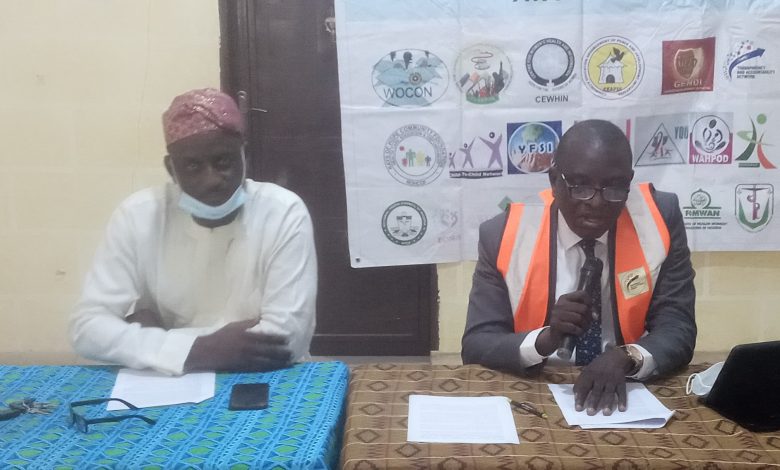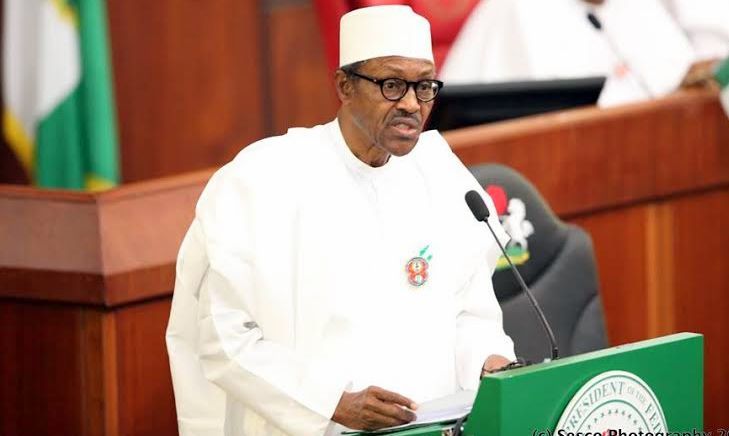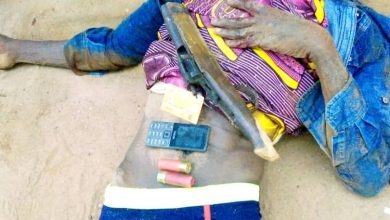
Transparency network accuses Nigerian elites of being responsible for country’s woes
A Non-Governmental Organisation, Transparency and Accountability Network (TAN) have accused Nigerian elites as being responsible for calamities the country is facing and passing through.
Penpushing reports that, National Coordinator of the Network, Olukunle Adeogun stated this on Thursday at a press conference in commemoration of the 2021 International Anti-Corruption Day, held in Abeokuta
‘It is widely accepted that misappropriation of public funds by corrupt political elites and their collaborators has remained one of the major causes of underdevelopment in Nigeria’, Adeogun emphasised.
Penpushing further reports that, the network noted that, Nigeria are a country richly endowed with human and material resources necessary for national development, but lamented that, national development has remained a mirage, as corruption has pervaded every effort made in this direction.

‘In 2018, Nigeria ranked 144th in the 180 countries listed in Transparency International’s Corruption Index. This translates to a score of 27 over 100 marks. This is highly disheartening especially when we evaluate the cost of corruption and how it has eroded the quality of life of the masses’, Adeogun said
Penpushing also reports that, he pointed out that. the citizens are on the receiving side of the consequences of corruption, stressing that, corruption deprives citizens of access to basic services such as quality health care, education, infrastructure, jobs, security and even opportunities to realize individual full potentials.
‘Corruption hampers development and has plunged Nigeria into a state of deteriorating socio-economic conditions such as the widening income and inequality gaps, extreme poverty, decay in the state of infrastructure even when the country is placed in a vantage position with access to abundant mineral resources’, he emphasised.
Penpushing reports that, Adeogun noted that, the role of citizens in the fight against corruption cannot be over emphasized, adding that as citizens, we have a duty to demand for accountability and transparency from government office holders and our leaders generally.
‘While demanding for accountable government, citizens must never forget that they are also leaders in their own spheres and citizens’ action and inactions directly or indirectly have an effect on others’.
Penpushing further reports that, the group said, this very important event is designed to raise awareness of the risks associated with different forms of corruption, adding that it is aimed at promoting a better understanding of the values and rewards of resisting corruption as an investment in long term personal and societal prosperity.
‘The transparency and accountability network is calling upon citizens to join in the fight against corruption, rise against the shackles of corruption and constructively engage with government’, he stated.
‘As citizens, our civic responsibility is not in voting alone, but also to demand accountability and transparency from those who we put in power to represent our interest’, Adeogun added.
‘On this International Anti-Corruption Day, we have come together under the umbrella of the Transparency and Accountability Network (TAN) to advocate for a country that is rid of corruption: we refuse to remain silent, but lend our voice to denounce corruption’.
‘We have mobilized ourselves; young and elderly. We are committed to making demands for transparent and accountable leadership through the use of different constructive engagement mechanisms’.
‘We use this medium to call on the Federal Government under the leadership of President Muhammadu Buhari, and all the State Governors to recommit themselves, their cabinet members and the entire Government architecture to the fight against Corruption’.

Penpushing also reports that, the network said, the legislature and judiciary at all levels of Government should be more responsible and responsive to total eradication of corruption through effective laws and adjudication.
‘Every 9th December is set aside by the United Nations as International Day of Anti-Corruption, to reflect on the negative implications of Corruption to Development and create awareness on needed actions to curb the menace and, to develop a strong ethical culture for good Governance’, he noted.
Penpushing reports that, Adeogun explained that, the theme of this year’s celebration “Your Right, Your Role: Say no to Corruption” is significant, adding that there.is no doubt that in the face of the coronavirus pandemic, an overwhelming population of Nigerians have experienced some form of loss, ranging from health, homes, jobs, businesses and the social impact this has had on individuals and corporate bodies, governments and public institutions not exempted.
Penpushing further reports that, the network said, the need to recover and to douse, as much as possible, the effects of this challenge, requires a lot of financial input and a rearrangement of budgetary plans.
‘According to the United Nation Convention Against Corruption, “Corruption thrives in times of crisis and the ongoing global pandemic is no exception. States all over the world have taken significant measures to address the health emergency and to avoid a global economic collapse’.

‘They hastily mobilized billions in funds to procure medical equipment and provide an economic safety net for citizens and businesses in distress. The urgent responses required, however, led some States to trade compliance, oversight and accountability for achievement of rapid impact, thus creating significant opportunities for corruption’, he said.
“Your Right, Your Role: Say NO to Corruption” highlights that only by putting effective corruption mitigation measures in place will a better recovery be possible, while it also emphasizes that inclusive COVID-19 recovery can only be achieved with integrity’.
‘In Nigeria, several sums of monies were donated by International bodies, governments, private organizations and individuals to help in combating the spread of the virus and to administer effective treatment to those who contract it’.

‘In the same vein, the public has continued to make demand on public offices and/officials, to declare the status of the accounts and the usage to which these monies were put, more so, as there has been no significant success recorded in this regard’.
‘In addition to the hoarding in several states of palliatives which were meant to be distributed to citizens to ease their economic hardship during this period, the national coordinator said.
Penpushing reports that, Adeogun said, to reduce the risk of corruption, there is need for strong institutions and anti-corruption agencies and groups to check the extent of mismanagement, both in public and private spaces and to demand transparency in all the activities of these institutions.
‘Corruption is a serious crime that can undermine social and economic development in all societies and no country, region or community is immune. Corruption has been noted as one of the biggest impediments to achieving the Sustainable Development Goals’, he stated.
‘According to the United Nations Development Programme, funds lost to corruption in developing countries, are estimated at 10 times the amount of official development assistance’.
Penpushing further reports that, in view of these, the body, a registered partnership organization of over 30 Civil Society Organizations across Nigeria, recommended that, there should be increase respect for the rule of law
The other recommendations stated for increase transparency and accountability in the use and management of available resources for the common good of all citizens, increase citizens access to information and the promotion of an enabling environment for free press to thrive.
Penpushing also reports that, the group called for Special Anti-Corruption court to try corruption cases within reasonable time, adding that ethical, moral and value education should be included in the curriculum of students at all levels in Nigeria.
The recommendations also stated that, anti-graft agencies should live up to their expectations in line with constitutional mandate for the betterment of entire citizens, there should be strong partnership between Civil Society organization, media and citizens to equip them on constructive engagement with government and taking ownership of government projects domiciled in their communities.

Penpushing reports that, the network added that, whistleblower policy should be reviewed, reinvigorated and sustained with adequate protection and commensurate encouragement for whistleblowers.
The body recommended total disclosure of all revenue and expenditure regarding coronavirus intervention in Nigeria by all tiers of government, as well as halting the current huge loan burden in Nigeria by both the federal and State Government.
Penpushing further reports that, other national officers of the network in attendance at the press conference include Apostle Tola Adenekan(Chairman, Board of Trustees) , Sina Adefolahan (Public Relations Officer) and Alhaja Yeni Rabiu(Treasurer)
FOOTNOTE: You want to share story with us? You want to advertise with us? You need publicity/live coverage for product, service, or event? Contact us on WhatsApp +2348073463653 or email penpushing@yahoo.com







